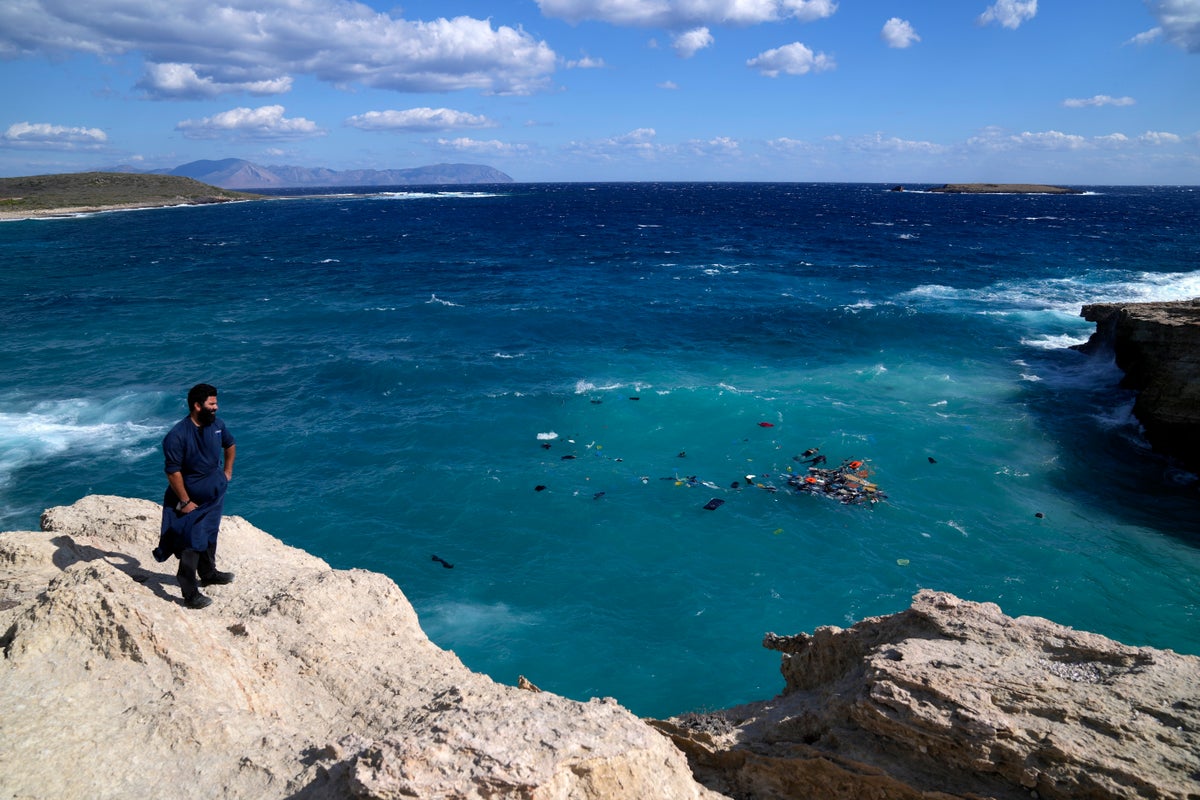
The UN has condemned the “cruel” and “degrading” treatment of 92 naked migrants found at the border shared by Greece and Turkey as the countries traded accusations over the plight of the men.
As many as 92 men, found naked and some bearing injuries, were rescued by Greek police close to the northern border with Turkey on Friday.
EU border agency Frontex found evidence that the migrants – mostly Syrians and Afghans – had crossed the Evros river from Turkey into Greece in rubber dinghies, Greek police said.
“The Frontex officers reported that the migrants were found almost naked and some of them with visible injuries,” said Paulina Bakula, spokeswoman for the organisation.
Greek authorities said they gave clothes, first aid and food to the man whose circumstances Greece’s ministry of civil protection said sent an “inhuman image”.
The UN refugee agency said it was “deeply distressed” by the shocking reports and demanded a full investigation into the incident.
“UNHCR is deeply distressed by the shocking reports and images of 92 people, who were reported to have been found at the Greek-Turkish land border, stripped of their clothes,” the UN agency said.
“We condemn such cruel and degrading treatment and call for a full investigation into this incident.”

The migrants reportedly told Greek police and Frontex officers that they were allegedly forced by Turkish authorities to board three vehicles and taken to the border. They testified that they were “forced to strip naked before boarding,” police said.
Athens and Ankara traded accusations, blaming each other for the incident in the latest row between the neighbours over migration.
“Turkey’s provocative behaviour exceeded all limits,” Greece’s ministry of asylum and migration said on Saturday.
Sharing the blurred pictures of dozens of stark naked men, Greek migration minister Notis Mitarachi said Turkey’s behaviour was a “shame for civilisation”.
“We expect Ankara to investigate the incident and protect at last, its borders with the EU.”
Greek minister for civil protection Takis Theodorikakos said: “One would expect a working explanation from the Turkish government’s side.”
The dispute escalated to the level that it prompted a response from the Turkish president’s office.
“The Greek machine of fake news is back at work,” president Recep Tayyip Erdogan’s top press aide Fahrettin Altun said in a series of tweets.
He blasted Greece for sharing the picture of already “oppressed people” while denying “groundless and unfounded accusations”.
“With these futile and frivolous efforts, Greece once again showed the whole world that it does not even respect the dignity of these oppressed people, by publishing the photographs of the refugees it has deported, extorting their personal belongings,” he said.
Greece was at the frontline of the 2015 European migrant crisis, also known internationally as the Syrian refugee crisis, when more than 1.3 million people from Syria, Iraq and Afghanistan came to the continent to escape war and persecution.
It led to an EU-Turkey migration deal in which Ankara agreed to contain the flow of migrants into Europe in exchange for €6bn (£5.2bn) in funds.
The discovery of the migrants comes a day after a leaked report revealed that an EU agency had slammed senior officials at Frontex for allegedly covering up illegal pushbacks of migrants by Greece to Turkey, a claim denied by Athens.
Greek authorities have said there is an increase in attempts to cross the Aegean Sea that divides the two nations and urged Ankara to respect the 2016 migration deal with the EU. The country said it will also extend a 40km fence along its northern border with Turkey to stop illegal migration, Mr Theodorikakos said.







